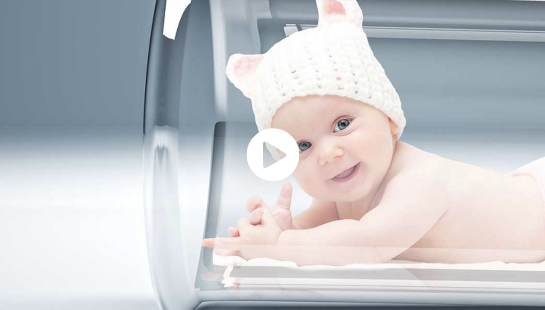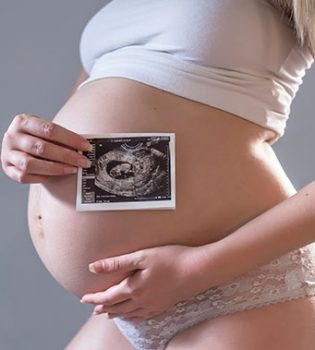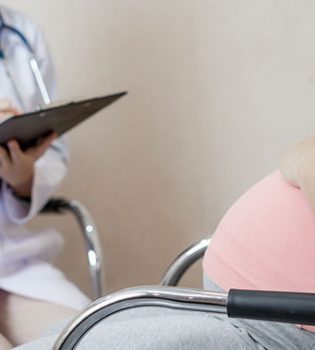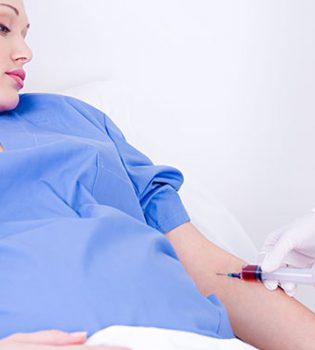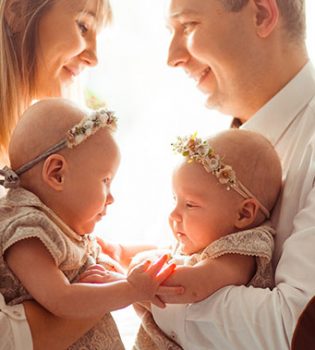Today, the marital and maternal age are constantly being postponed by women. Among the reasons for this postponement, first of all, to consolidate her professional career, to provide financial security or to try to be psychologically ready for motherhood can be listed. In addition, as a result of technological developments, there is a great increase in the number of women who become pregnant with assisted reproductive techniques (microinjection-in vitro fertilization). Many women who have not been pregnant for years experience the happiness of being pregnant in this way. As a result, advanced age pregnancies are more common nowadays.
The important point is that the woman is aware that age has an impact on a healthy pregnancy and the potential to conceive. Physiologically, the optimal fertility age for a woman is between the ages of 20-30. The condition that expectant mothers are 35 years or older is called Advanced Maternal Age. These types of pregnancies are considered as risky pregnancies and require a closer and special follow-up. In fact, the age limit of 35 was determined purely based on statistical data. In other words, expectant mothers in pregnancies aged 35 and over are at greater risk of complications, and the risk increases as the age of the mother increases.
Of course, this age is not a definite limit, but represents an increasing risk.
First of all, if we consider the issue of being pregnant; Advanced age is not a definite obstacle for pregnancy to occur, but as the age increases, the time lasted until getting pregnant increases. While the chance of getting pregnant in any month under the age of 30 is 20%, this chance is reported to be only 5% over the age of 40. In other words; A 25-year-old woman can usually get pregnant within a few months, while for normal women over the age of 35, it may take longer than 6 months. The risk of miscarriage also increases as the age increases.

The “egg quality” decreases as the woman ages, resulting in a decrease in their ability to be fertilized by sperm. If these eggs are fertilized, there is a greater risk in terms of genetic disorders. For example, Down Syndrome (three instead of two of the 21st chromosome, mongolian baby) is more common in children of older women. Reasons that make it difficult to get pregnant as the woman ages;
Aging of the ovaries
When girls are born, there are approximately 400,000 eggs in their ovaries. After birth, there is no egg production and as the woman ages, the eggs also decrease and age irreversibly.
Decrease in fertilization rate
As age advances, the chance of fertilization of the egg with sperm and forming a good quality embryo after fertilization decreases. The probability of pregnancy ending in miscarriage also increases.
Decrease in ability of the inner lining of the uterus to retain the fertilized egg
As the age advances, the ability of the endometrium (inner layer of the uterus) to retain the fertilized egg decreases and therefore the chance of pregnancy decreases.
Endometriosis disease and increase in incidence of fibroids
As age advances, endometriosis disease, which causes infertility by bleeding into the abdomen, and fibroids that occupy space in the uterus are more common.
In addition, until the age of forty, many women may undergo surgical interventions due to inflammations, ectopic pregnancy, appendicitis, endometriosis or various reasons that may affect their fertility and block the tubes related to the female organs. However, it should not be forgotten that the biological age of women is more important than the chronological age in terms of reproductive health. Sometimes a 45-year-old woman can produce eggs regularly, while a much younger woman may have entered menopause early. Married couples over the age of thirty-five should not wait more than six months to consult a physician if they cannot conceive although they have intercourse regularly.

Of course, aging does not only affect women. In men, although there is no menopause as in women, there is a decrease in sexual functions and changes in the ability to have got the women pregnant as the age advance. Often, along with aging, there is a slight decrease in the levels of the male hormone testosterone, and this can also cause a decrease in sexual drive (libido). It has also been shown in men that the testicles also shrink and soften a little along with aging. Sperm shape and motility also tend to deteriorate slightly over the years. Despite these changes, there is no maximum age limit for men to have children!
If an elderly woman decides to get pregnant;
First of all, it should be investigated whether there are any medical problems that may occur when pregnancy occurs. For example, conditions such as hypertension or diabetes can cause problems during pregnancy.
FSH and estradiol (E2) measurements on days 2-4 of menstruation and evaluation of the appearance of the ovaries by ultrasound provide important information to evaluate the potential for pregnancy.
An important issue that women in the advanced age group should know is that the chance of carrying a baby with a genetic problem is higher than that of younger women.
When they become pregnant, it is possible to reveal this situation with procedures such as amniocentesis or chorionic villus sampling.
For elderly infertile women who cannot get results despite effective treatment (such as micro injeciton and in vitro fertilization), purchasing young women’s eggs from some centers abroad, that is, egg donation may be considered. However, since our laws do not allow this, this procedure is not carried out within the borders of the Republic of Turkey. Pregnant women with advanced maternal age may have to deal with many problems during pregnancy.
For example, Undesirable events such as high blood pressure (hypertension), which is a serious problem in pregnancy, gestational diabetes, premature birth, loss of baby in the womb, peripartum cardiomyopathy (heart failure that can develop in the prenatal and postnatal period), postpartum hemorrhages, placental abnormalities, premature birth, stillbirth are also more common. As the maternal age advances, the chance of having other systemic diseases during pregnancy also increases.
But all this should not scare the expectant mother. These risks can be minimized with careful follow-up and on-site interventions by experienced doctors.
Are there any risks to the baby?
Being a mother at an advanced age can carry risks not only for pregnant women but also for babies. As mentioned before, one of the important problems in pregnancies over the age of 35 is the increased probability of chromosomal abnormality. Among them, Down syndrome (mongolism) takes an important place.
In cases where the baby is delivered prematurely due to pregnancy-related diseases in the mother, pregnancy-related hypertension, diabetes and placental abnormalities, the baby is exposed to the dangers arising from premature birth.
As a result, it should be known that in terms of women, as the gestational age is delayed, infertility problems are experienced, the pregnancy process becomes more difficult, and the complications of pregnancy and delivery increase.
